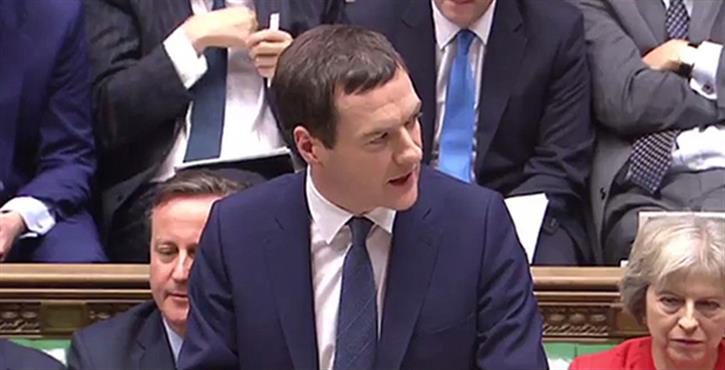

Yesterday (16 March), Chancellor George Osborne delivered the 2016 Budget, announcing a variety of measures concerning topics from soft drinks to oil and gas, including some changes that will affect small businesses and renewables.
The Small Business Rate Relief threshold will rise from its current £6,000 level to £15,000 for the smallest businesses, with the threshold for the higher rate rising from £18,000 to £51,000. Mr Osborne said this meant 600,000 small businesses would pay no business rates at all from next year, with another 250,000 seeing rates being cut.
Melanie Leech, chief executive of the British Property Federation, said: “The reform to small business rate relief is one of the most generous aspects of an otherwise revenue raising budget and is to be welcomed as small businesses are often the lifeblood of local economies. We are pleased that the government has also recognised that the annual uplift in rates should be based on the government’s own preferred measure of inflation – CPI rather than RPI. This will be tinged with disappointment, however, that it won’t come into effect until 2020, and thus for larger businesses who are struggling any rates relief will be a long time coming.”
The decision on a government proposed increase in VAT rates for domestic solar systems was notably absent from the Budget. Paul Barwell, CEO of the Solar Trade Association said: “No VAT news is good news on Budget Day. This delay means we can continue to make the very strong case for Treasury to abandon plans to hike up VAT on solar. It makes no sense to penalise British families that want to take meaningful action on climate.
“The Energy Department is on the record saying they will look again at support levels for domestic solar if VAT rates are increased so households should be assured it will still pay to go solar whatever happens. However, the VAT increase should not go ahead; it would delay the point at which solar will not need public support in the UK and that would be an own goal.”
If you'd like to keep up-to-date with the latest developments in the heating and plumbing industry, why not subscribe to our weekly newsletters? Just click the button below and you can ensure all the latest industry news and new product information lands in your inbox every week.